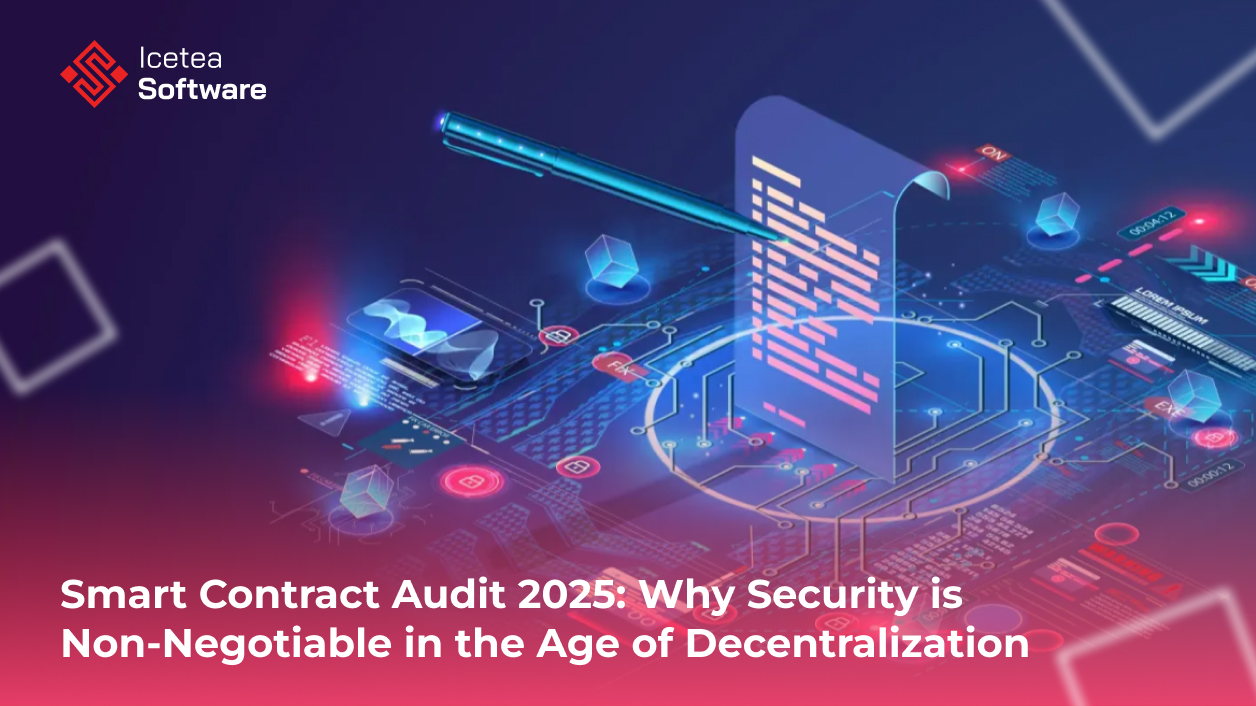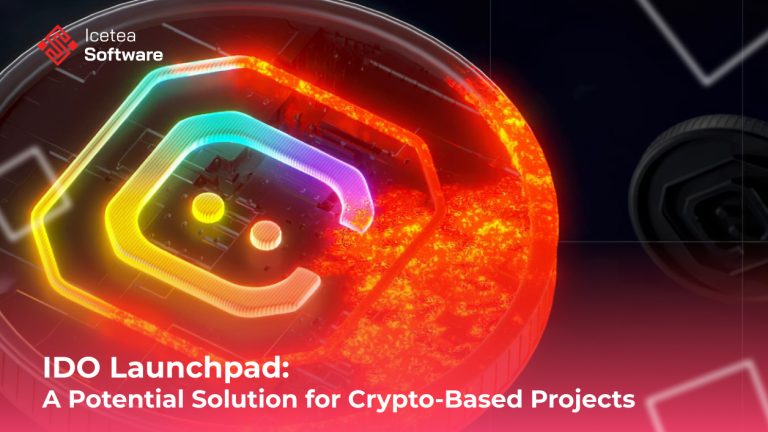Smart Contract Audit 2025: Why Security is Non-Negotiable in the Age of Decentralization
In 2025, blockchain has matured from a buzzword into a mainstream technology. From decentralized finance (DeFi) protocols to NFT marketplaces, supply chain solutions, and even government services, smart contracts now underpin billions of dollars in value and decision-making processes.
But with great decentralization comes even greater responsibility — and a growing attack surface. As the complexity of smart contracts increases, so does the need for rigorous, continuous auditing.
Let’s explore why smart contract audits matter more than ever in 2025, and what businesses, developers, and users should know to stay secure in this rapidly evolving landscape.
Why Security Is Mission-Critical in 2025
Smart contracts are self-executing programs that run on the blockchain. Once deployed, they can’t be altered. That immutability is what gives blockchain its trustless power — but it’s also what makes bugs and vulnerabilities so dangerous.
In 2025, the cost of a vulnerability is no longer measured in thousands — but in hundreds of millions.
Recent examples include:
- Cross-chain bridge exploits that drained ecosystems within minutes
- Flash loan attacks on DeFi protocols that bypassed logic gates
- NFT contract flaws that allowed unauthorized transfers or permanent locks
In each case, the root cause could have been mitigated with better audit practices, code reviews, or security-first design.
Smart Contracts Are Getting Smarter — and Riskier
Today’s smart contracts have grown far beyond simple token logic — they now power complex DeFi protocols, DAO governance systems, and cross-chain interactions. While this evolution has unlocked new functionality, it has also introduced unprecedented levels of complexity and risk.
Cross-chain interoperability allows assets and data to move freely between blockchains, but also brings hidden dependencies. A vulnerability in one protocol can ripple across others through bridges, oracles, and wrapped assets — making isolated audits insufficient.
Meanwhile, modular architectures and proxy upgrade patterns complicate traditional auditing. Logic is separated from storage, requiring auditors to meticulously trace contract interactions to catch issues like storage collisions or improper access control delegation.
DAO governance adds another unpredictable layer, where human behavior and voting incentives can be exploited. Security in this context isn’t just about code — it’s about understanding how decentralized decision-making can introduce new attack vectors.
As smart contracts become smarter, attackers are becoming faster and more automated. Sophisticated bots and AI-assisted tools are now used to scan for vulnerabilities at scale. In this high-speed threat landscape, manual reviews alone are no longer enough.
To stay secure in 2025, projects must combine manual audits with automation, formal verification, and real-time monitoring. The winners in Web3 won’t just innovate faster — they’ll secure smarter.
What Is a Smart Contract Audit?
A smart contract audit is a structured, methodical process where experienced security professionals review and analyze a contract’s code for:
- Logic errors
- Access control flaws
- Reentrancy vulnerabilities
- Gas inefficiencies
- Upgradability and storage collision issues
- Compliance with established security standards (e.g., SWC Registry)
Modern audits also include:
- Formal verification
- Automated static and dynamic analysis
- Unit and fuzz testing
- Attack simulations / white-hat hacking
The goal is not just to prevent hacks — but to build confidence for users, investors, and protocol partners.
Why Audits Are Essential in 2025
1. Investor and User Trust
In an era of rug pulls and exploits, having your contracts audited by a trusted firm has become table stakes. Audits act as a seal of transparency, showing you take security seriously.
Projects without audits (or with shallow, checkbox-level ones) are often ignored or distrusted by the Web3 community and institutional investors alike.
2. Regulatory Scrutiny
As governments begin enforcing crypto regulations, particularly around DeFi and tokenized assets, smart contract audits are being considered as compliance steps. Insurance providers, exchanges, and legal teams are increasingly requesting audit certifications before launching or listing projects.
3. Interoperability Risks
In 2025, most DeFi protocols are interconnected. A vulnerability in one contract can cascade into others through protocol integrations, oracles, or cross-chain bridges. Smart contract audits now need to consider not just the internal logic, but external dependencies and integrations.
4. Brand and Reputation
One exploit can destroy years of credibility. Users don’t just blame hackers — they blame poor code and oversight. A thorough audit shows proactive risk management, and in many cases, helps protocols recover faster in the face of incidents.
What Makes a Good Audit in 2025?
Audits are only as good as the process behind them. In today’s landscape, a strong audit should offer:
Human + Automated Review
Relying on either one alone is risky. Best practices combine automated tools with expert manual review.
Clear, Actionable Reports
Stakeholders need detailed, understandable reports — not vague warnings. A good audit breaks down vulnerabilities by severity, impact, and fixes.
Re-Audit After Fixes
An audit without a follow-up is incomplete. Ensure all patches are verified by the same firm or a second trusted party.
Testing Infrastructure Support
The best firms help teams build better test coverage, add unit/fuzz tests, and even provide custom test cases.
Ongoing Monitoring
In 2025, the audit process doesn’t stop post-deployment. Many top projects opt for continuous auditing or audit-as-a-service models that offer real-time detection of risks.
Looking Ahead: AI-Powered Audits & Security Layers
AI has begun playing a significant role in modern audit workflows. From automatic bug detection to predictive threat modeling, machine learning models accelerate the audit lifecycle by identifying potential vulnerabilities faster and more efficiently. However, while AI enhances speed and accuracy, it has not — and cannot — fully replace human insight, especially when it comes to interpreting context, understanding complex logic, or foreseeing unconventional attack vectors.
Looking ahead, we can expect the rise of on-chain audit verification protocols, where audit records are immutably stored and easily accessible to public trust. Community-driven bug bounty platforms will become more deeply integrated into project governance, encouraging decentralized participation in ongoing security efforts. In parallel, smart contract firewalls and real-time runtime monitoring layers will emerge as standard defense mechanisms, adding another layer of protection beyond the initial audit.
Security in 2025 is no longer just about preventing breaches — it’s about building proactive resilience. It’s about creating systems that can detect, respond to, and recover from threats in real time. And as AI and human expertise work hand in hand, the future of smart contract security looks smarter, faster, and stronger than ever.
Final Thoughts
At Icetea Software, we believe that in the world of Web3, security is no longer optional — it’s fundamental. As the blockchain ecosystem continues to scale in 2025, smart contract audits have become more than just a development checkpoint; they are a strategic investment in trust, stability, and long-term growth. Whether you’re building a DeFi protocol, launching an NFT marketplace, or developing an enterprise-grade DApp, ensuring your code is secure should be a core part of your roadmap — not an afterthought.
In an environment where billions of dollars move through decentralized applications and where vulnerabilities can be exploited in seconds, smart contract audits are your first and best line of defense. At Icetea Software, we approach audits not as a box to check, but as a collaborative process — combining deep technical expertise, security-first thinking, and a genuine commitment to helping our partners grow with confidence.
Because in 2025 and beyond, the projects that win won’t just be the most innovative — they’ll be the most secure. And we’re here to help you both.
————————–
𝗜𝗰𝗲𝘁𝗲𝗮 𝗦𝗼𝗳𝘁𝘄𝗮𝗿𝗲 – Cutting Edge Technologies!
Website: iceteasoftware.com
LinkedIn: linkedin.com/company/iceteasoftware
Facebook: Icetea Software








